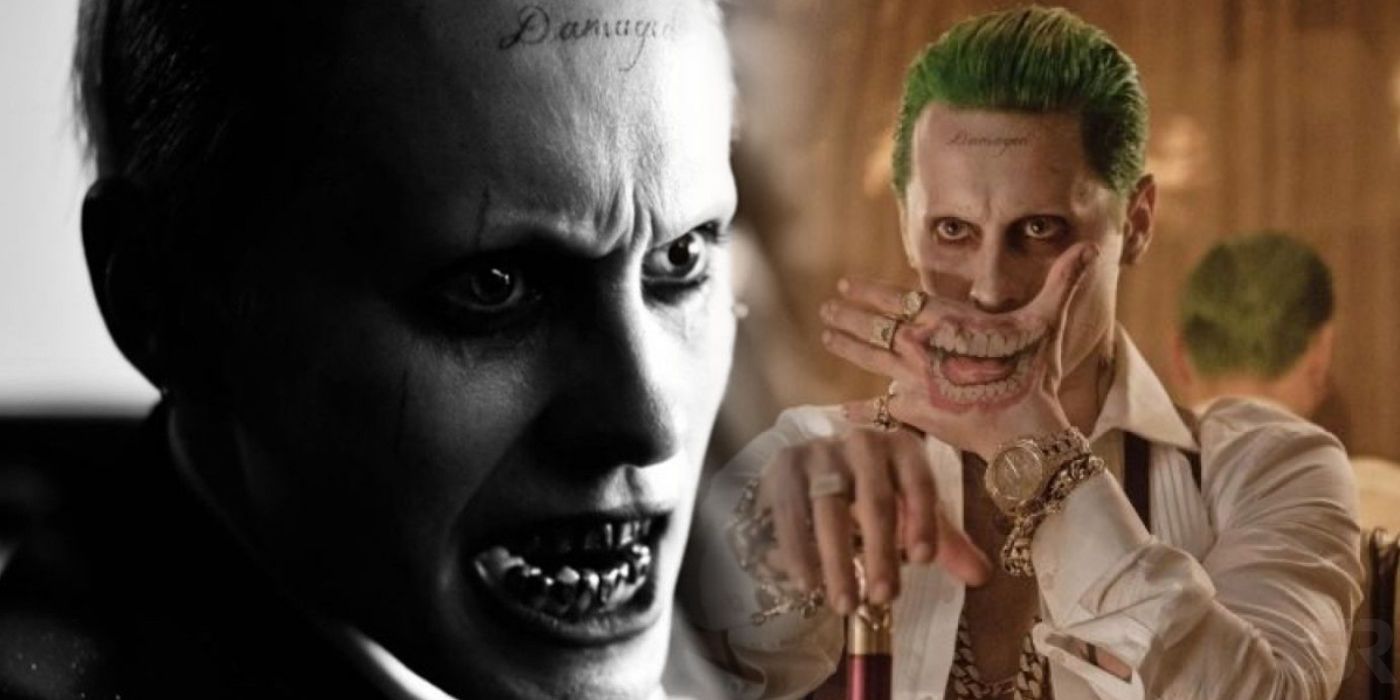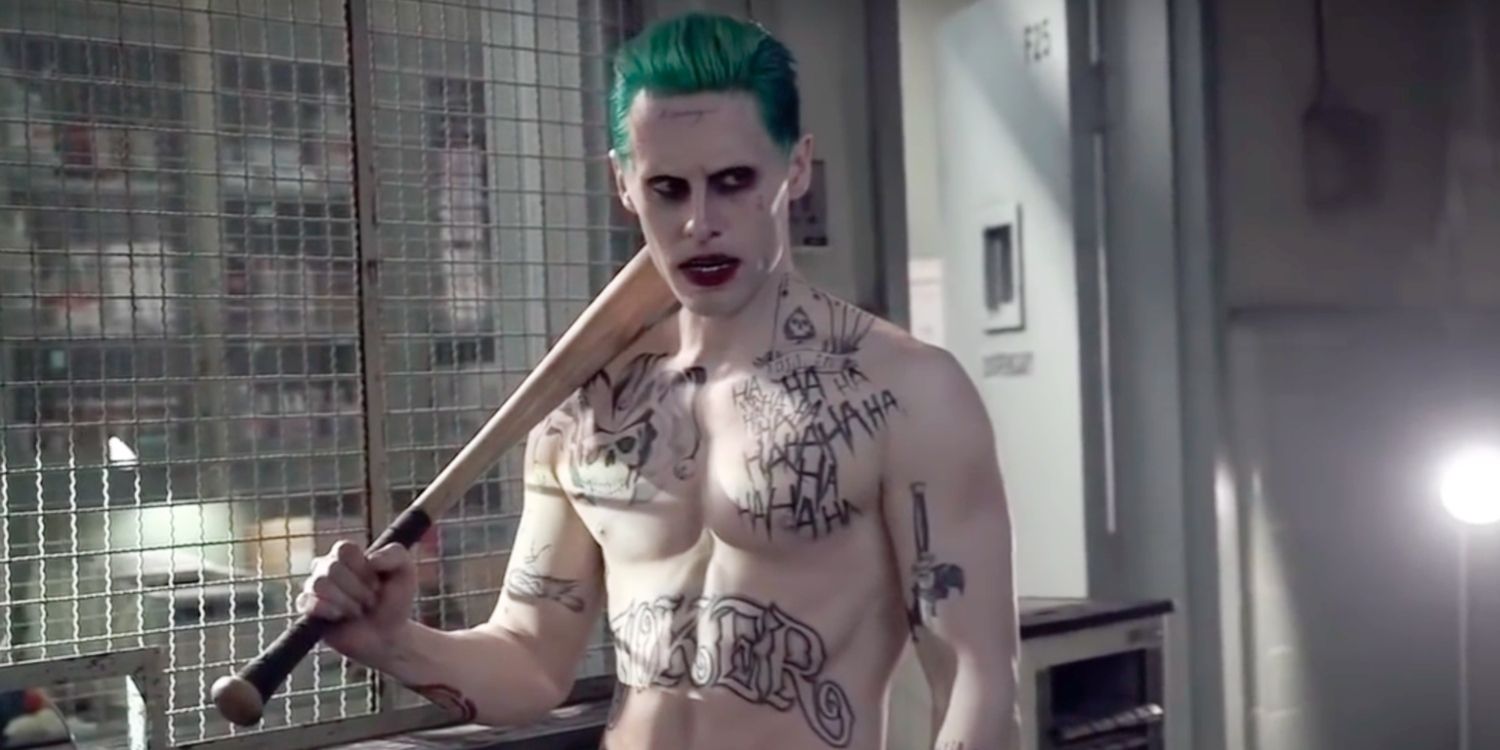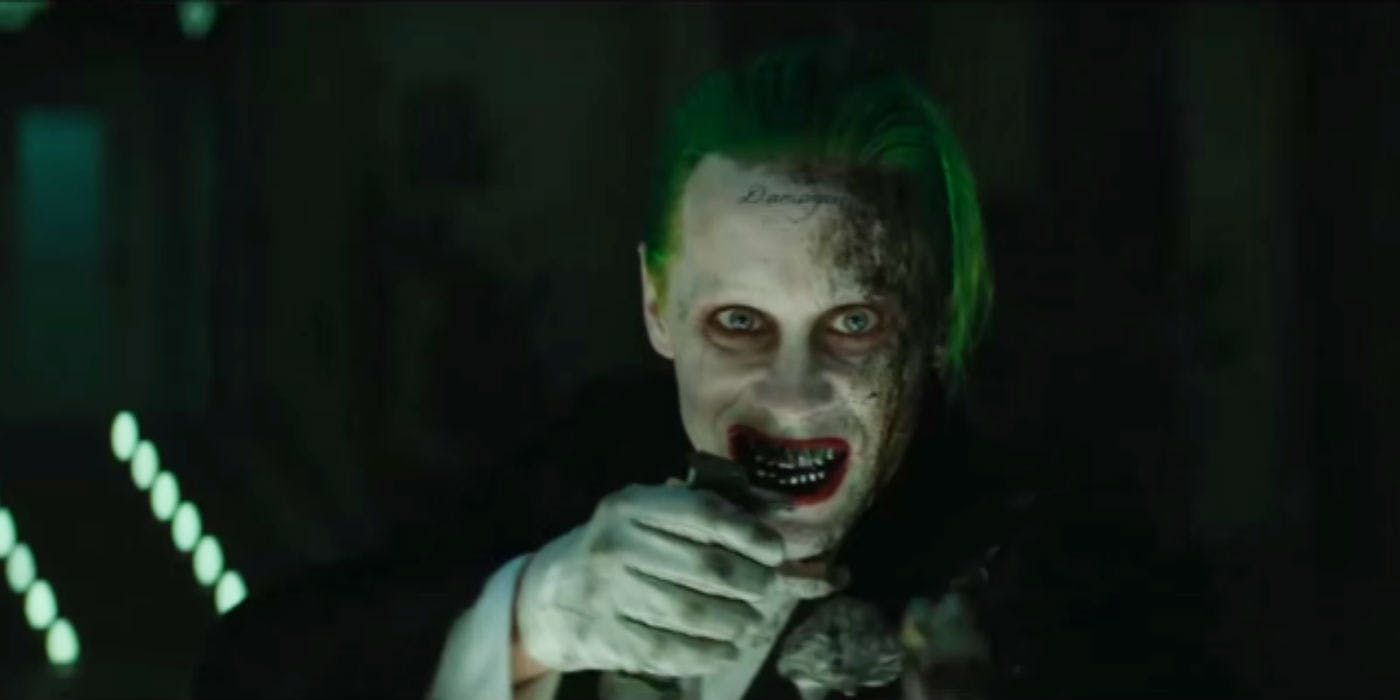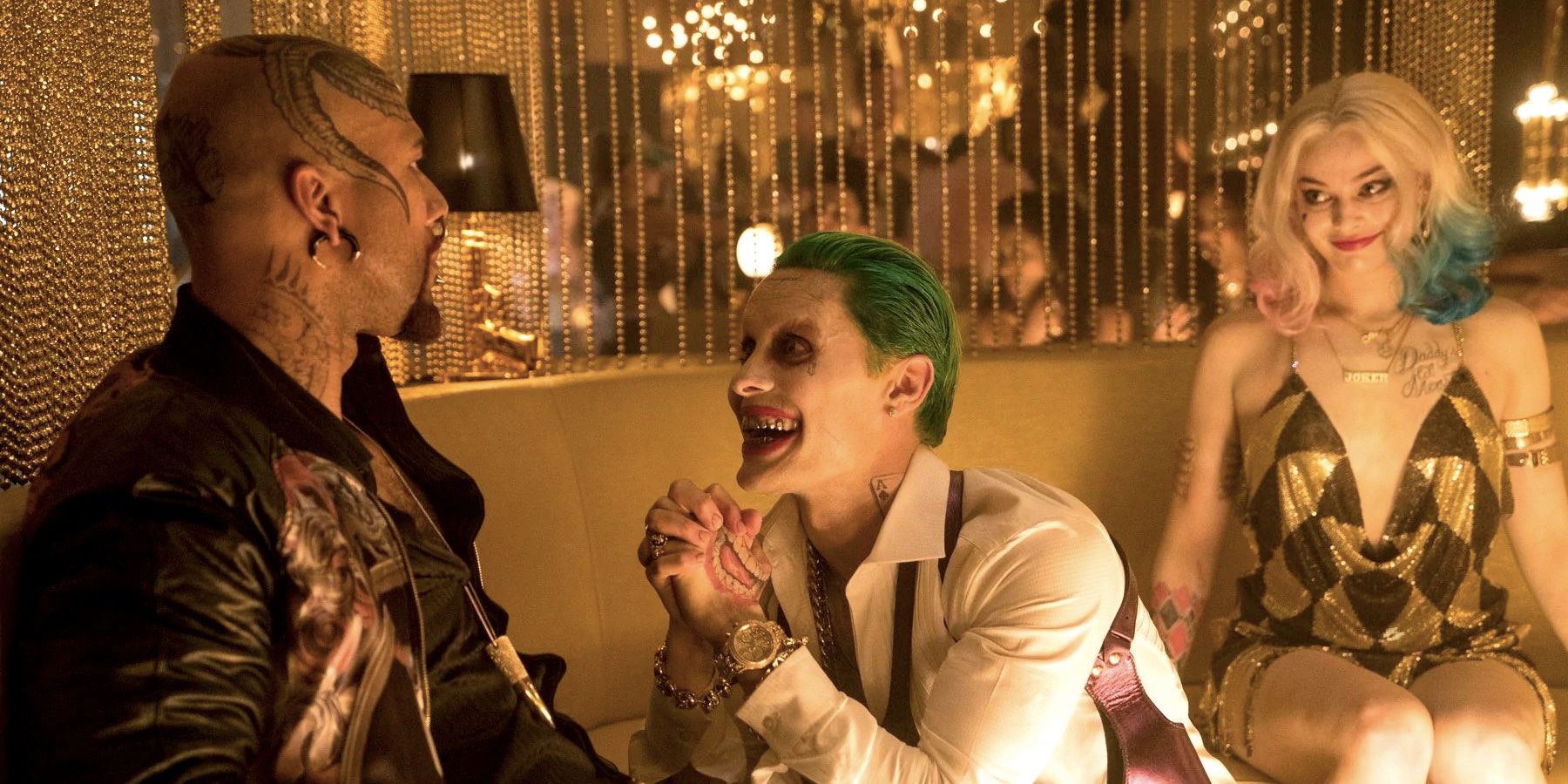Jared Leto's unique portrayal of The Joker was one of the most divisive elements of 2016's Suicide Squad, but as fans voice their support for the potential release of a director's cut of the movie, there's a chance that it could potentially redeem Leto's version of the character. The third film released in the DCEU, Suicide Squad follows Deadshot, Harley Quinn, and several other iconic supervillains from the DC Universe as they attempt to stop the ancient supernatural entity Enchantress from culling the human race. Similar to Zack Snyder's unfinished version of Justice League, there are countless reports of behind-the-scenes trouble resulting in Suicide Squad's critically panned theatrical cut being radically different from David Ayer's intended version, and even more different than the initially planned script.
Even before the release of the movie, Leto's Joker was making headlines and causing controversy because of the bold new look Ayer had envisioned for the character; one more in common with the aesthetic of cartel gang culture than traditional depictions of The Joker. His Joker had tattoos, silver-capped teeth, and walked around shirtless far more than anyone was expecting. Though many were opposed to the character's reinvention in the movie, Leto's Joker also had ardent fans, as well as viewers who were curious to see what it would be like for his Joker to go head-to-head with Affleck's Batman.
Now that the precedent has already been set by the announcement of Zack Snyder's Justice League debuting on HBO Max, fans are hopeful that they'll also get a chance to see David Ayer's original cut of Suicide Squad. Among other things, this would mean a more in-depth understanding of what Ayer had in mind for the character, as well as another shot for Leto's performance to win over some of his more ruthless critics.
The Biggest Problems With Jared Leto's Joker
As stated above, Leto's Joker ran into pushback from the comic book community even before he appeared on-screen. Not only was his appearance a point of contention, but all the behind-the-scenes rumors coming out about his method acting techniques did little to inspire confidence in the people who heard them, and instead convinced a lot of people that he was trying too hard to come across as crazy in the performance. Unfortunately, these things soured a lot of people to Leto as The Joker before they'd even seen the movie.
The theatrical release didn't help much either, with a potent mix of bad dialogue and lack of narrative purpose serving as his downfall. It felt as if the script tried too hard to write dialogue that felt "quirky" and insane, and it sounds awkward coming out of Leto's mouth. This isn't exclusively a problem for him, but his writing unfortunately takes the biggest hit. The theatrical cut of the movie also doesn't really justify his existence within it all that much. Since the main antagonist is Enchantress, The Joker becomes secondary to the primary action, and as a result his scenes feel empty because they don't have much of an impact on the plot.
Arguably the biggest problem with Leto's Joker, though, is his relationship with Harley Quinn, and how that relationship evolves (or, truthfully, doesn't) over the course of the film. Harley and The Joker have a notoriously abusive relationship in the comics, so people rightfully assumed that Suicide Squad would tackle this head-on, considering that Harley joining the Squad's roster back in 2011 came after she decided to split from the Clown Prince once and for all. However, Suicide Squad's Joker spends the whole film searching for Harley because he wants her back, which is already contrary to the nature of their relationship in the first place. Instead of centering their conflict and giving Harley a moment to become her own person independent of The Joker, his subplot culminates with Harley returning to him, only for her to return to the Squad minutes later after The Joker seemingly dies in a helicopter crash.
Joker's Story In Suicide Squad Director's Cut
When the theatrical cut of the movie was released on Blu-Ray/DVD, Suicide Squad received an Extended Cut that re-added a couple of deleted scenes back into the movie's narrative. Most of these were just extended versions of scenes that were already present in theaters, but The Joker received a couple of scenes that weren't in the theatrical release. These scenes were dedicated to building the backstory of his relationship with Harley, and what they primarily highlighted was the emotionally manipulative nature of their involvement with each other. In typical fashion, The Joker would neglect her and gaslight her into giving him what he wanted, which in one deleted scene means convincing Harley into jumping into a vat of acid. While these deleted scenes aren't everything that we know Ayer had planned for the film, they're important to mention because they form the backbone of what Ayer wanted The Joker's story to be.
Recently, Ayer confirmed a screenplay page that had been making the rounds on Twitter was from the film's shooting script, and had indeed been shot and edited during the production process. The scene in question revealed that Joker had secretly formed an alliance with Enchantress, threatening the Suicide Squad with the detonator linked to the exploding chips implanted into each of them. This ties in with what Ayer has been saying about The Joker's role in the movie for about two years now, which is that he was meant to return after his helicopter crash, and make a deal with Enchantress so that he could take Harley back with him and become the "King of Gotham." In turn, Harley would have double-crossed him, affirming her loyalty to her newfound friends and helping to defeat both Enchantress and her former lover.
Can Jared Leto's Joker Be Redeemed?
While these scenes wouldn't have radically changed The Joker's existence in the film, it would have certainly re-contextualized his purpose for being in the movie and given him a part in Suicide Squad's primary conflict. More important than this, however, is that these scenes would have given real thematic weight to his relationship with Harley and strengthened both of their characterizations: The Joker becoming more ruthless and sinister, and Harley getting the chance to stand up for herself and become independent. This would have definitely satisfied both fans demanding to see more of Leto's Joker, as well as Jared Leto himself, who was reportedly very unhappy with the theatrical cut's decision to leave out most of his performance.
Although a Director's Cut of Suicide Squad would certainly enrich fans of that era of the DCEU, it probably would not win over anyone who doesn't already like certain aspects of the movie. Ayer's original cut wouldn't radically change The Joker's appearance, or the more flamboyant aspects of Jared Leto's performance. Anyone who went into Suicide Squad determined not to like Jared Leto's Joker will probably feel the same way about him if a Director's Cut is released, but for those with an open mind, Ayer's original vision just might be enough to make viewers think differently of Leto's take on the Jester of Genocide.




